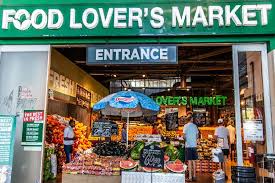The planned closure of Food Lovers Market branches in Borrowdale and Avondale in Harare is raising fresh concerns over the future of OK Zimbabwe, the country’s largest retail group. The shutdown, which will take effect by June 30, 2025, is being seen by many as more than a business decision—it’s a warning sign of deeper financial and operational troubles within the retail giant.
In a statement issued by company secretary Margaret Munyuru, OK Zimbabwe said the move is part of a wider restructuring effort aimed at cutting costs and focusing resources on core operations. She explained that the decision to close the two high-end stores is a strategy to “rationalise the group’s portfolio and redirect investment into more profitable and sustainable ventures.”
But industry watchers say this move tells a bigger story. For years, OK Zimbabwe has been battling tough economic conditions in Zimbabwe. From runaway inflation—now at 92% as of May—to unstable electricity supply, foreign currency shortages, and falling consumer incomes, the retail sector has been under siege. And OK Zimbabwe has not been spared.
The company had high hopes for its Food Lovers Market outlets, a premium grocery concept designed to appeal to middle and upper-class customers. But those hopes have dimmed under the weight of economic realities. With incomes falling and consumers prioritising basic items like maize meal and cooking oil over imported goods, the upscale model failed to connect with the mass market.
Food Lovers Market entered Zimbabwe under a territorial license agreement, which gave OK Zimbabwe the exclusive right to run the South African brand locally. But sources say that the costs linked to the agreement—including franchise fees and sourcing obligations—added pressure to the company’s already fragile finances.
“The shutdown of Borrowdale and Avondale stores is not just cost-cutting. It’s a retreat from a strategy that didn’t match local realities,” said independent retail analyst Tendai Chakamba. “OK Zimbabwe needs more than quick fixes. It needs a major reset.”
According to the company, it will begin winding down operations immediately at both stores. Clearance sales will offer deep discounts on remaining stock. Munyuru also assured suppliers that any outstanding balances will be honoured by OK Zimbabwe.
The closure comes on the back of growing frustration from customers, who have noticed fewer products on shelves across many OK stores. Supply chain problems and foreign currency shortages have made it hard for the company to maintain stock levels, leading to long gaps in essential goods and a drop in customer loyalty.
OK Zimbabwe recently attempted to turn things around by raising US$30 million in capital and introducing leadership changes. However, analysts warn that money alone cannot fix a weak business model or bring back lost customers. “They must fix the basics—stock availability, pricing, store service, and loyalty programmes,” said another analyst.
Company data shows that while revenue appears to be growing in Zimbabwe dollar terms, real revenue—adjusted for inflation—is actually falling. Profit margins are shrinking, and debt levels are rising. These financial stress signals have only deepened the market’s doubts about OK Zimbabwe’s long-term future.
Despite these setbacks, the company insists it is not going anywhere. Munyuru said the group remains committed to its three main brands—OK Stores, Bon Marché, and OKmart—which will continue to serve customers nationwide.
But questions remain. As more Zimbabweans turn to informal markets, cross-border shopping, and online platforms, traditional retailers like OK Zimbabwe must find new ways to stay relevant. Many observers argue that the group has failed to adapt quickly enough to this changing retail environment.
For now, the closure of Food Lovers Market stands as a major blow to the retailer’s image. The Borrowdale and Avondale stores were once symbols of growth, customer experience, and modern retailing in Zimbabwe. Now, they are reminders of how far the company has to go in fixing its problems.
“The shutdown sends a strong message—premium models will not survive in an economy where most people are just trying to survive,” said one anonymous industry expert.
Still, OK Zimbabwe’s leadership remains hopeful. “We thank our loyal customers, partners, and staff who supported the stores over the years,” said Munyuru. “We will now focus fully on making our core brands better and stronger.”
Whether that promise can turn into real progress remains to be seen. What is clear is that the retail game in Zimbabwe is changing fast—and only those willing to innovate and adapt will survive.
